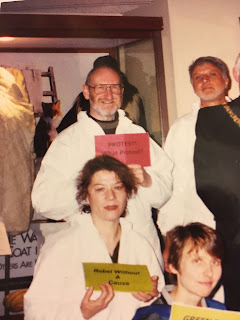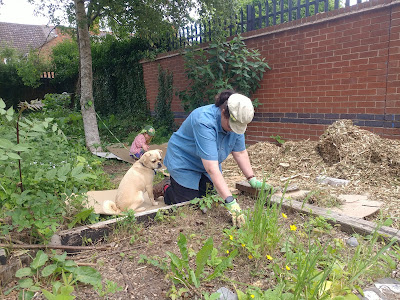This is a summary of issues raised in various online reports and COP 26 decisions.
We know that getting
climate justice for the nations most affected by climate change, who have
contributed little or nothing in emissions, is a huge priority. The most affected areas include Tuvalu and the Marshall
Islands threatened by rising sea levels, parts of sub Saharan Africa and the
Arctic and the Caribbean.
The pledge from Copenhagen 2009 to provide $100 billion a year
starting 2020-25 has not yet been
delivered – figures from 2019 show that poor countries were given $80 billion according to the OECD.
The two main distinctions are between money for projects
aimed at mitigating green house gasses, such as developing alternative energy generation using solar
panels, hydro and wind farms etc., and projects designed for adaptation, such as
early warning systems for extreme weather events, air conditioning to counter
extreme heat, resettlement of communities away from coastal areas and changing
agricultural practices to crops more resistant to drought. Examples from the
November Geographical magazine include creating mangrove seawalls in Indonesia,
building amphibious rather than stilted houses in Vietnam and planting salt
tolerant crops in Bangladesh.
Both approaches are valid but the key issue for developing
countries is that only about 20% of the
$80 billion funding allocated is for adaptation projects – Global North countries
preferring to sell the type of material on which they can make a profit.
Global South countries are lobbying for the financial
allocation between mitigation and adaptation to be 50:50, rather than the skewed
distribution at present.
Another problem is the status of the finance provided. In 2019, 71% of the public climate finance took the form of loans rather than grants. This can suck poorer countries into a cycle of debt. They have to borrow money at punishing rates of interest to repair the effects of hurricanes and cyclones and, if they use their loan to pay for a project that gets destroyed in the next extreme weather event, they are left with a debt and no tangible benefit.
Small island states and the least developed countries are now
lobbying for a new stream of funding for loss and damage, in addition to
mitigation and adaptation projects. Historically, the Global North has been
extremely reluctant to buy into this and resists any notion of funding being
compensation or restitution.
Antigua, Barbuda and Tuvalu have announced a commission to
explore if there might be legal grounds for loss and damage funding from
polluting countries.
COP 26 Decisions
Many developing countries were left very disappointed by the
decisions made on issues which were critical for them. It would seem that
the conference was a debate between Global North countries about
how far they were prepared to go to reduce emissions, having accepted to some
extent there was some urgency required to keep within 1.5 degrees Celsius. Some of the
developing country decisions appear to be a holding operation to be considered
at another day.
Climate funding
There were new pledges from US, UK, Germany, Japan and
others of climate funding which it is estimated would finally achieve $1 billion
by at least 2025 or perhaps a little earlier if other funding could be brought
in. Some experts are saying that funding in trillions would be more realistic.
There was a recommendation, rather than a requirement, that
developed countries should double their collective provision for adaptation
projects by 2025, but this would still fall short of the 50:50 provision
requested by Global South countries and there was no detail concerning time
scales and transparency.
There was a mention of the impact of debt levels carried by
poorer countries for the first time but no indication of how this could be
reduced. It does provide a marker for future discussion, however.
There was some recommendation about making funds available
as grants but also recommendations about making cheap loans which still allowed
wide discretion on the part of funders.
Jubilee Debt Campaign claims, however, looking at the small
print, that some countries may pay their contributions out of their existing aid
budget instead of making new money available which is in the spirit of the
funding. This could include the UK.
Loss and Damage Funding
This was a very important issue for frontline island
nations and others which was effectively sidelined, with the promise that a
“dialogue on loss and damage would begin next year in Egypt.”
To their great credit, Scotland has promised £2 million to a special
Loss and Damage Fund, managing this way to provide UK money, but circumventing
Boris and the Treasury who have made no such pledge. Wallonia – an area of
Belgium has also pledged 1 million euros.
There will be a huge head of steam on this issue by next
year, particularly after another year of global warming induced weather events,
so we will wait to see what transpires.
Indigenous People Support
Five countries, including the US and UK, and global charities
have promised $1.7 billion to support indigenous people and the conservation of their
land. How this gets to the grassroots in an effective way will need scrutiny.
Deforestation
A group of countries have pledged £14 billion by 2030 to halt and
reverse global deforestation by restoring degraded land, managing wildfires and
supporting indigenous people. This has included Brazil's president, who will
need detailed supervision on this!
The introduction of an annual review of emissions pledges at COPs means we are now in continuous campaigning mode on this issue, which should increase important pressure.
By Alison Skinner





















